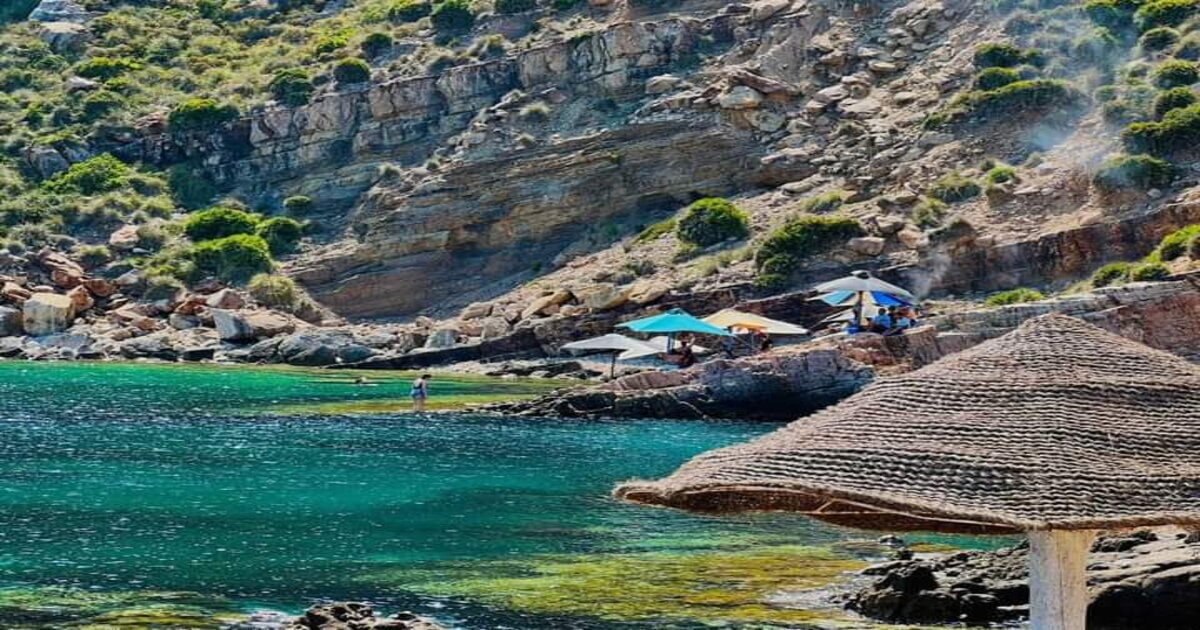
In an age where travelers seek meaningful, off-the-beaten-path experiences, El Haouaria is poised to become one of Tunisia’s most valuable eco-cultural destinations.
Located where the Mediterranean meets the mountains, El Haouaria boasts a dramatic and diverse terrain:
Turquoise bays and wild beaches, perfect for swimming, snorkeling, or kayaking
Steep cliffs and grottos, offering panoramic views of the sea and birdlife
Forest trails, ideal for hiking and connecting with nature
The Ghar El Kebir caves—once used by the Romans to extract stone for Carthage and other ancient cities—remain a striking testament to the region's geological and historical wealth.
Each spring, El Haouaria becomes a sanctuary for migrating falcons, particularly the eleonora’s falcon. For centuries, locals have practiced traditional falconry, an endangered cultural craft recognized for its deep symbolic and historical significance.
The Festival of Falcons takes place annually, celebrating this bond between people and raptors through demonstrations, music, and folklore.
It attracts bird watchers, researchers, and eco-tourists from around the Mediterranean.
This living heritage is not only captivating, but it also holds potential for sustainable tourism that protects both culture and wildlife.
Unlike Tunisia’s bustling tourist hubs, El Haouaria maintains a quiet, humble charm. Life here is slow and grounded, driven by:
Fishing traditions and small-scale agriculture (notably olives and citrus)
Family-run restaurants and guesthouses serving freshly caught seafood
Locals known for their warmth and hospitality
Staying in El Haouaria means disconnecting from stress and reconnecting with the essentials—sea, silence, and simplicity.
With its preserved environment and low-density development, El Haouaria is a model site for eco-tourism initiatives. Potential areas for development include:
Eco-lodges that blend into the cliffs and forests
Birdwatching tours, especially during the migration season
Heritage walks through Roman-era quarries and Berber ruins
Artisan markets focused on local crafts and organic products
Such development must be carefully managed to avoid the mistakes of mass tourism—ensuring that the natural landscape and local culture remain at the heart of the experience.
Access: El Haouaria is about a two-hour drive from Tunis and can be reached via the N1 and P1 roads. It’s ideal for day trips from Nabeul or extended rural stays.
Challenges:
Lack of tourism infrastructure (limited hotels, signage, tour operators)
Need for investment in sustainable waste management
Risk of overdevelopment if not regulated
However, these very gaps present opportunities for ethical investors, NGOs, and local entrepreneurs to shape a better model of tourism.
The area is home to historic mosques, Roman ruins, and traditional music and dance. Locals continue to celebrate religious and seasonal events that reflect Tunisia’s multicultural heritage.
The calm, open landscapes and sea views have also made El Haouaria a growing destination for:
Wellness retreats
Spiritual journeys
Writers, photographers, and creatives seeking inspiration
In El Haouaria, everything flows gently—the waves, the wind, the way of life. It is a place that nourishes the senses and the soul. For travelers seeking more than snapshots—for those who want to feel, learn, breathe, and connect—El Haouaria stands ready, untouched and welcoming.
Whether you're a conscious traveler, an environmentalist, an entrepreneur, or simply a lover of hidden gems, El Haouaria deserves a place on your map—and in your heart.